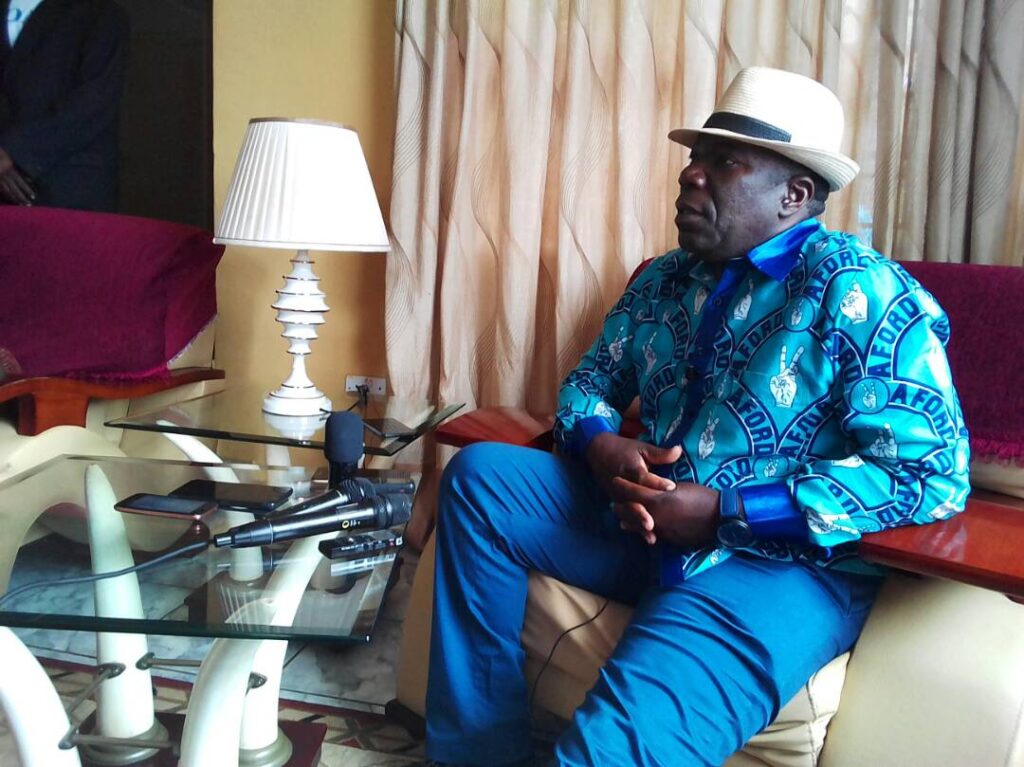A deal, a decoy or a silent coup of the opposition! In what has been packaged as a “united front to liberate Malawians,” an alliance agreement between the Democratic Progressive Party (DPP), United Democratic Front (UDF), Alliance for Democracy (Aford) appears more like a chessboard where Arthur Peter Mutharika holds all the key pieces.
Behind the promises of reform, economic revival, and power-sharing, a closer read of the leaked agreement, in our possession, exposes a strategic masterstroke by the DPP—an arrangement where it alone names the presidential candidate and running mate, monopolises appointment powers, and leads every high-level undertaking in both the alliance and government structures.

Reports indicate that the three parties have already secretly signed the agreement at a ceremony held at Page House on Sunday witnessed by Mutharika’s trusted aid Norman Chisale, former First Lady Gertrude Mutharika, DPP Vice President Central Alfred Gangata, and DPP Secretary General Peter Mukhitho, all representing the DPP. The Pangolin could not independently confirm who represented the UDF and Aford.
While the agreement gives lip service to proportional representation and consultation, the terms read more like a unilateral and badly crafted movie script—drafted, directed, and to be led by the DPP which would also be in a starring role.
In the agreement, the DPP effectively defines the alliance’s tone and tempo, reducing UDF and Aford to political passengers in a vehicle they will help build but won’t be able to drive. For observers and insiders alike, the deal raises one uncomfortable question: Is this an alliance of equals, or has the DPP pulled off a silent coup under the guise of unity?
“What we’re seeing here is not a coalition of equals—it’s a power transfer to DPP disguised as unity. UDF and Aford have essentially mortgaged their political identity for a seat at a table they won’t be allowed to set,” observes a political science lecturer from the University of Malawi.
With political stakes high and elections looming, the agreement clearly exposes one thing: the DPP isn’t just participating in this alliance. It’s running it.
Malawi’s political landscape has long been fractured along ethnic and regional lines. DPP, now led by Mutharika, having ruled from 2005 to 2020, retains support in the southern region mostly among the Lhomwes, although of late this has become debatable with the Malawi Congress Party (MCP) making inroads into the region.

The UDF, led by Atupele Muluzi son of the first multi-party President Bakili Muluzi, historically strong in the south as well, has also seen its influence waning, while Aford, under Enoch Chihana, remains a shadow of its past glory with even the north slipping away from its grip.
This sorry state of the opposition leaves the 2025 elections shaping up to be a rematch between the MCP-led government and a fractured and desperate opposition. This alliance is seen as a move in distress—a coalition that seeks to pool electoral strengths, but inevitably laying bare the fault lines of political ambitions of the opposition.
Apart from the supposedly reformist agenda, the alliance agreement also emphasizes on regular coordination through joint strategy teams and parliamentary caucuses as well as proportional representation in Cabinet and government appointments based on parliamentary seat wins.
Despite this rhetorical balance, the real power has been structurally consolidated in the hands of the DPP with clauses suggesting that a party with the largest numbers of seats will have a lion share of everything from cabinet appointments to various positions in public service and government agencies.
A governance expert observes that the alliance is less of a partnership but more of a power grab with the DPP “cleverly wrapping control in the language of cooperation.”
He says: “The DPP didn’t just negotiate this alliance—they engineered it to dominate. They’ve positioned themselves to win even if the alliance loses. This alliance could easily become a vehicle of exclusion. The optics of DPP leading everything from candidate selection to Cabinet appointments is worrying.”
Another political scientist says the real story behind the alliance is not the unity, rather the silent absorption of the opposition political parties with the DPP increasingly looking like garnering for a takeover.
“In all essence, this agreement represents a masterstroke of political maneuvering by the DPP, aimed at consolidating opposition votes without conceding strategic power; projecting unity to the public while ensuring internal dominance; neutralizing political rivals by giving them symbolic relevance without substantive authority,” she says.
She further observes that by allowing Aford and UDF inclusion without co-leadership roles, DPP has essentially “rented their relevance for electoral math, not governance parity.”
Most commentators have indicated that the alliance presents a number of risks as the unequal power dynamics create a fragile foundation for such an alliance.
“Should the DPP dominate post-election, internal rebellion or alliance collapse is probable. The alliance claims to stand for good governance, transparency, and equality, yet structurally violates these principles,” said one commentator.
In this agreement, the UDF and Aford have been sold a dummy. The document leans heavily on electoral tactics, with impressive policy commitments serving as political cover, but with the presidency and vice presidency monopolized by DPP, the rest of the alliance might find themselves in the role of spectators, not partners.








